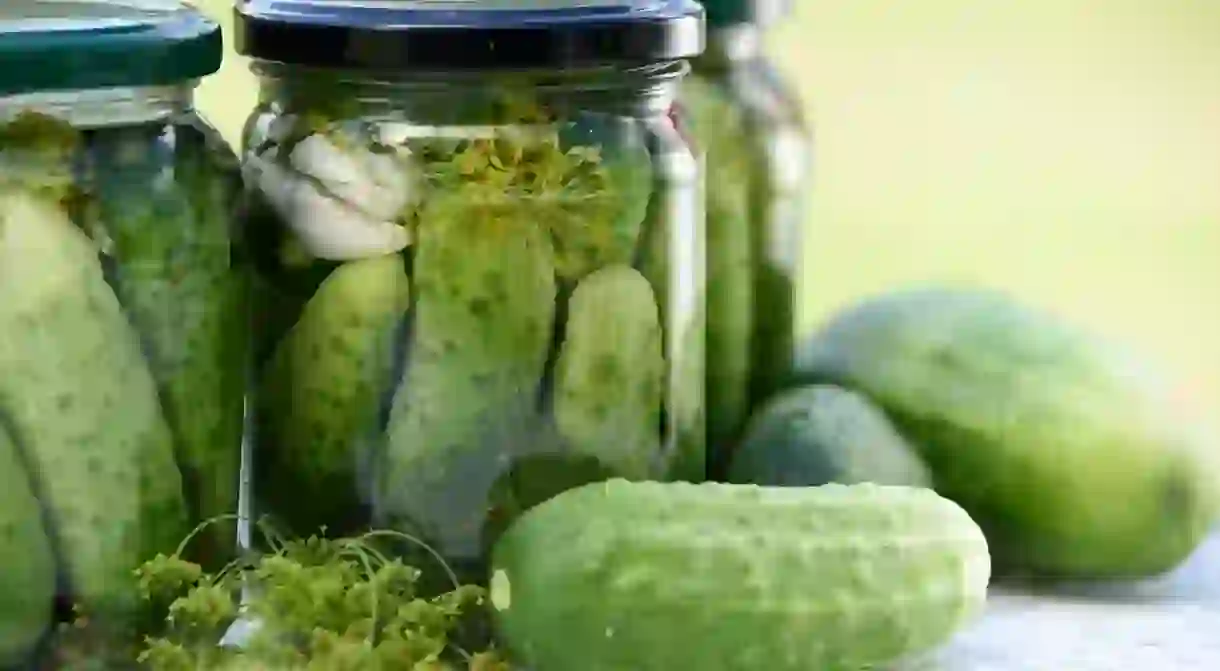10 Things All Balkan People Have in Common

When travelling across the Balkans, you’ll notice that there are certain features that you encounter again and again no matter what country you’re in. Based on a common past, language roots, and heritage, Balkan people share much in terms of culture, superstitions, traditions, and lifestyle. Here are a few highlights.
They preserve food for the winter
No matter whether you call it ajvar, lyutenitsa or pinjur, preserves are a big deal in the Balkans. At least once a year, people here will spend a weekend cooking huge amounts of vegetable-based delights and conserving them in jars for the winter – the same goes for all kinds of pickles, meat, jams, and jellies. Balkan people don’t trust the food sold at supermarkets because they have at least one friend who works at a food factory, and based on what he or she has seen, they’ll never ever eat supermarket food.
They rely on fortune telling
Balkan people are very superstitious and tend to plan their future based on the grounds of the Turkish coffee they’ve just finished, or on what a self-proclaimed fortune-teller has ‘seen’ about their fate. Many Balkan people have a red thread tied around their wrist (to keep away bad fortune and black magic) or a blue glass eye hanging in their car (for the same purpose if they are Muslim).

Their love is rough
Balkan nations have far too many swear words in comparison to love words. They express their love in a way that’s rough and often inexplicable to foreigners – gentle words are considered a sign of weakness, especially among men.
Grannies knit woollen slippers for everyone…
…and then insist on everyone wearing them. When the slippers become too small for your adult feet, they are then duly unravelled, and the yarn reused to create new, larger slippers.
They brew their own strong alcohol
Again, there is both a similarity in words (raki, rakija, rakia) and in technique. Balkan men take pride in their homemade alcohol and are happy to boast about it. If you are invited to a local home, you will most probably be welcomed with a glass of home-produced plum or grape distilled spirit.

A Balkan woman can outdrink any random European
Balkan people are heavy drinkers and they are proud of it. It takes much more alcohol to bring them to a helpless condition than it would for any random foreigner.
They enjoy doing nothing
Take a walk along any Balkan city’s main pedestrian street and you will see hundreds of people leisurely sipping coffee and talking, or just people-watching on any random working day. Even if they have remained jobless for some time, they rarely take it to heart and instead, they make the most of their free time – they thoroughly enjoy it.
They talk really loudly
If you see two people talking to each other from both sides of the street, you can be almost sure you are in the Balkans. Although they are often irritated by other people’s shouting, they stick to their own loud tones, proclaiming that “nobody tells me how to speak!”.

Politics is a sensitive issue…
Balkan people are always complaining about their corrupt politicians, and although it seems they all know who is accountable for everything that happens behind closed doors, it’s hard for a foreigner to understand why things don’t change and why corrupt leaders aren’t deprived of their power.
…and so is nationalism
Avoid commenting on the current borders of countries, or the justice of this and that international treaty, unless you are fully aware that in doing so you threaten the happy, friendly atmosphere of the evening. The Balkans are a hodgepodge of complicated connections, history, and national and local political problems that keep on simmering under the lid of peaceful coexistence, and it takes a lot for a foreigner to understand and to be able to judge them.













